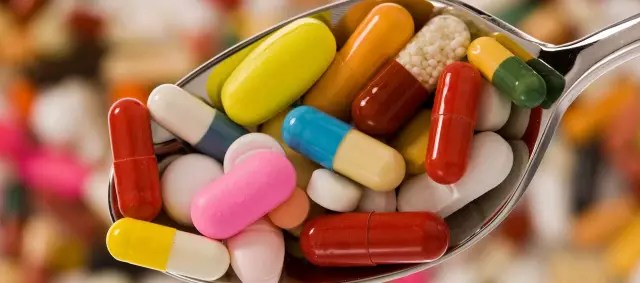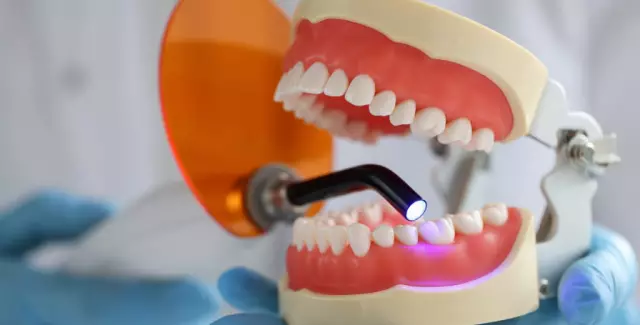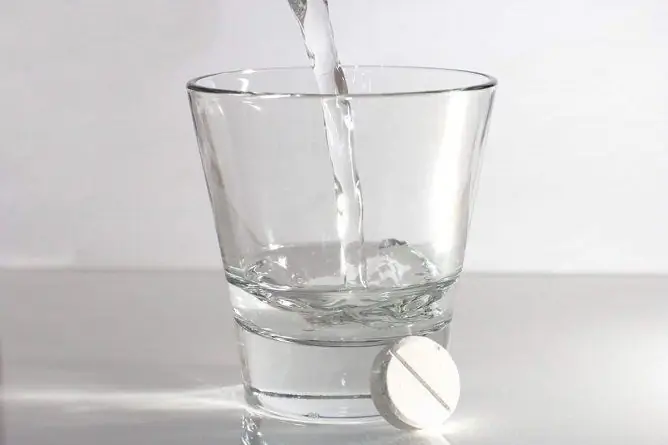- Author Rachel Wainwright [email protected].
- Public 2023-12-15 07:39.
- Last modified 2025-11-02 20:14.
Is it possible to be treated sparingly: original drugs, analogues and generics
Anyone facing an illness knows that treatment is usually expensive. This also applies to consultations with qualified specialists and diagnostic procedures not included in the list of mandatory medical services.

Source: depositphotos.com
With the cost of medicines, everything is not so simple: almost every drug is produced by several manufacturers, and its price can vary significantly. In this situation, it makes sense to understand how the original funds, their analogues and generics differ from each other.
How is the price of a drug and its generics calculated?
A lot of work always precedes the appearance of a new drug on the market. As a rule, scientists hired by one of the large pharmaceutical companies study the effect on the human body of a previously unused combination of known substances (very rarely - with the inclusion of a completely new, recently synthesized substance). To obtain permission for the industrial release of a drug, it must be tested for some time in a laboratory on animals, and then full-fledged clinical studies in humans. Only after obtaining reliable assessments of the effectiveness and safety of the drug can a patent be issued for it. Then the firm organizes an advertising campaign to attract the attention of doctors and patients to the unfamiliar remedy. The whole process takes several years and costs a lot of money. As a result, a new drug is entering the market,and the costs of researching, patenting and advertising it are inevitably included in its cost.
Having patented the composition and trade name of the drug, the company acquires the right to single-handedly release it during the period of patent protection. For different countries, the term differs, for example, in Russia it is from 10 to 25 years, and in the USA - 12 years. All this time, the inventor company has been making profits from the sale of the drug. Of course, other firms are not averse to participating in the production of new items, but it is legally impossible to do this until the expiration of the patent protection. Moreover, if the drug is really effective, consumers are also interested in its expanded release. And it is highly desirable to reduce the cost of the drug so that it becomes available to patients with low incomes.
All these reasons lead to the appearance on the market of generics - copies of original drugs released with the permission of the inventor or after the expiration of the patent protection period. As a rule, they are produced either under other names (patenting only the name entails much less costs than registering the initial product), or under an international non-proprietary name, which is the name of the main active ingredient of the drug.
Generic is usually less expensive than the originator. Manufacturers do this in three ways:
- Locate production in countries where there is a large amount of cheap labor. It should be noted that the firms themselves, owning patents, often do this in an effort to reduce the cost of their drug.
- Cheaper raw materials are used for the production of substances that have a therapeutic effect. This can greatly reduce the cost of a medicine, but it does not always allow maintaining its quality at the proper level.
- Replace the excipients that are part of the drug with cheaper ones. Although the main active ingredients remain the same, such generics may be less beneficial than the original drugs and have more side effects.
Sometimes unscrupulous manufacturers start producing "analogues" of drugs in demand, without waiting for the expiration date of patents. This action in itself violates the law, and it is not surprising that in such cases, no one really cares about the real identity with the original. Taking counterfeit drugs can have unpredictable consequences.
Should I buy generics instead of original drugs?
Before you decide for yourself this question, you should understand that generics are rarely complete analogues of the original drugs. For two drugs from different manufacturers to be considered identical, their chemical composition is not enough. Analogues should be the same biologically and therapeutically, that is, they should not differ from each other either in the specificity of assimilation by the body, or in the mode of action. Moreover, identity must be proven by the results of extensive clinical studies. It is clear that the generic company will never incur such costs - this would greatly increase the cost of its products and make it impossible to compete with the original.
Generics are as close as possible to the original drugs, which are manufactured under the license of the inventors and under their direct control. In such cases, quality is closely monitored: large pharmaceutical companies do not want to tarnish their reputation.

Source: depositphotos.com
A generic drug produced by a third-party pharmaceutical company usually contains the same active ingredient as the originator drug. If it is made without breaking technology, the consumer can expect a similar therapeutic effect. Given the noticeable difference in price, it is sometimes worth closing your eyes to small differences in the composition of excipients (of course, if the differences do not cause severe side effects). That is why WHO supports the idea of producing cheap analogs of expensive branded drugs. The recommendations of this organization have already helped millions of low-income patients around the world to gain access to modern means to ease the course of serious illnesses and improve the quality of life.
Each person independently decides whether to overpay for the brand, if there is an opportunity to take a cheaper, but no less effective medicine with the same active ingredients. It is worth remembering that a positive answer to this question in no way excludes the need to choose a quality generic (especially since there are several for almost every original product). A sensible approach to treatment involves following the recommendations of specialists and a sober assessment of one's capabilities and needs.
YouTube video related to the article:

Maria Kulkes Medical journalist About the author
Education: First Moscow State Medical University named after I. M. Sechenov, specialty "General Medicine".
Found a mistake in the text? Select it and press Ctrl + Enter.






